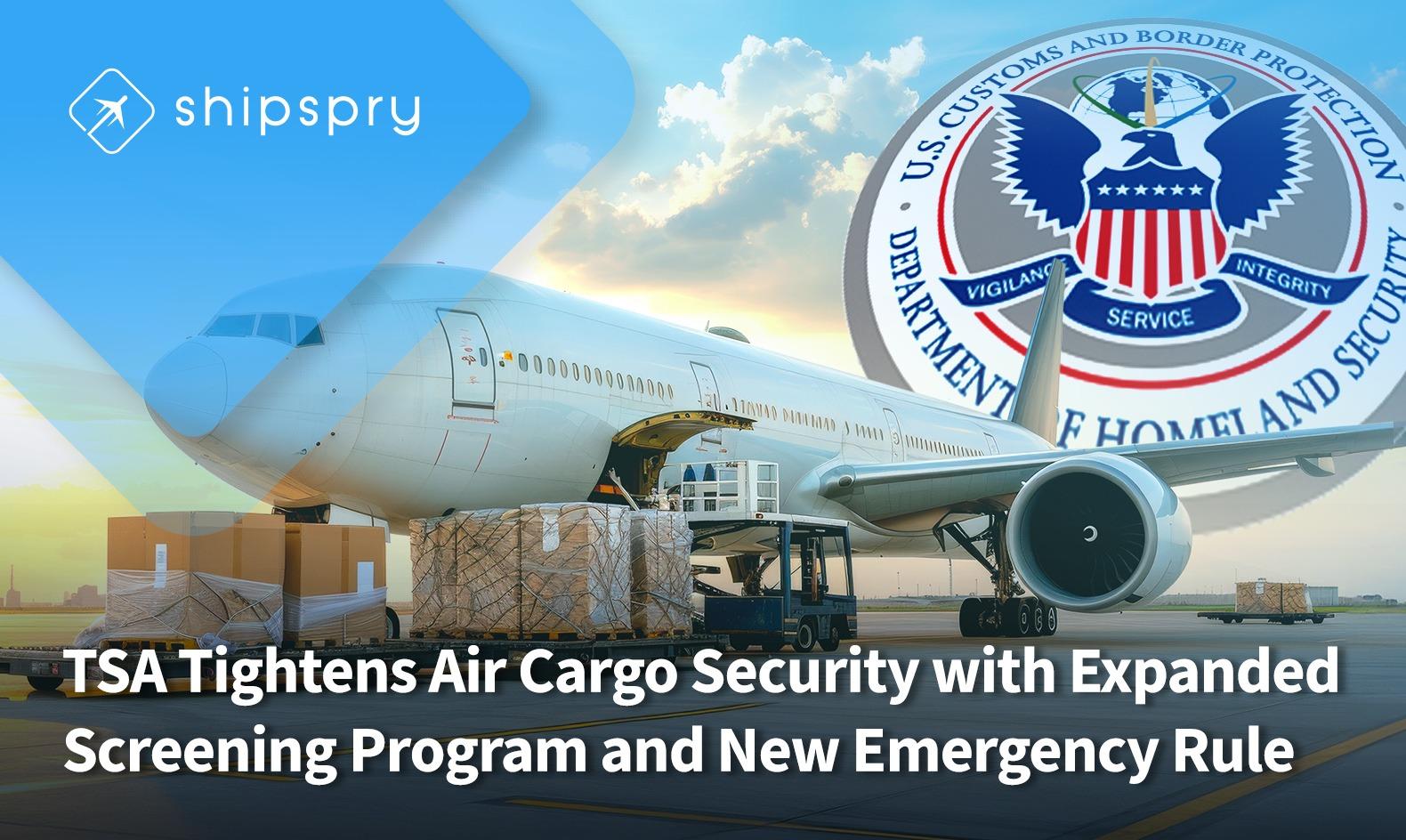The Transportation Security Administration (TSA) has recently introduced new regulations to bolster air cargo security, focusing on the Air Cargo Advance Screening (ACAS) program and expanding the Certified Cargo Screening Program (CCSP). Effective August 21, 2024, these changes aim to enhance security by requiring carriers to provide additional information about shippers and consignees to U.S. Customs and Border Protection (CBP), giving authorities more time to identify and mitigate potential threats before air cargo arrives in the United States.
1. Impact of the New ACAS Rules: The sudden implementation of the updated ACAS requirements has created significant challenges for international airlines. Under these new rules, carriers are now obligated to submit more detailed information about the parties involved in air cargo shipments. While this measure is intended to strengthen security, it has also placed an increased burden on carriers who must rapidly adjust to comply.
The abruptness of these changes has led to confusion across the industry. Some airlines have temporarily halted their U.S.-bound cargo services to better understand and comply with the new regulations. For example, Korean Air has suspended cargo sales for shipments originating from Europe, CIS, and Middle East regions until November 18, 2024, as it works to meet the TSA’s requirements. The situation has sparked concern, with industry stakeholders calling for clearer guidance and a more gradual implementation process to avoid disrupting global trade.
2. Connection to the Air Cargo Advanced Screening (ACAS) System:
The emergency rule is believed to be an extension of the US Air Cargo Advanced Screening (ACAS) system, which was launched in 2018. ACAS allows customs officials to pre-screen cargo destined for the US, identifying potential threats and ordering crews to unload suspicious shipments. The recent amendment is seen as a response to specific classified intelligence indicating that terrorist organizations might exploit vulnerabilities in international air cargo security.
3. TSA Expands Certified Cargo Screening Program:
In parallel with the emergency rule, the TSA has expanded its Certified Cargo Screening Program (CCSP), enabling more air cargo shippers to enter the secure supply chain. This expansion allows supply chain stakeholders, including indirect air carriers, manufacturing facilities, and warehouses, to undergo training and achieve Certified Cargo Screening Facility (CCSF) status.
According to TSA executive director for air cargo John Beckius, the CCSP expansion will enhance both the speed and security of air cargo shipments. Certified participants will be able to package and ship secure air cargo, reducing the need for additional screening later in the supply chain. This initiative aligns with TSA’s broader mandate, which since June 30, 2021, has required all US-originating air cargo destined for international locations to be screened or secured before loading onto an aircraft.
4. Impact on the Global Air Cargo Supply Chain:
The combination of the emergency rule and the expanded CCSP reflects TSA’s ongoing efforts to secure the air cargo supply chain while addressing potential threats to aviation. However, the sudden implementation of the new requirements has raised concerns among carriers, who are now grappling with the challenge of adapting to these changes.
These recent changes by the TSA underscore the evolving landscape of air cargo security. While the new ACAS rules and expanded CCSP are intended to enhance safety, they also present new challenges for carriers and other supply chain stakeholders. For businesses involved in air cargo, staying informed and ensuring compliance with these updated regulations is crucial to avoid disruptions and maintain the flow of goods across borders.
Source: Aircargonews and The Loadstar
 September 1, 2024 - By : admin
September 1, 2024 - By : admin